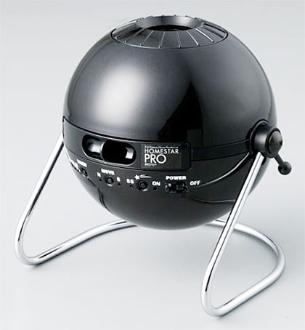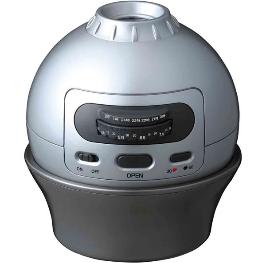Star Discs
NEW!! FX Zoom Home Planetarium. For further information click "Here"

DS1 Home Planetarium. For further information click "Here"

DS Skyview Pocket Planetarium. For further information click "Here"

Click "HERE" for Replacement Uncle Milton/Nashica Discs
Click "HERE" for Replacement Homestar Flux/Pro/Classic Discs
you stumbled upon it or that you are looking for better star discs for your
Planetarium Star projector. How often do we get to view the night sky without
the effects of light pollution? Several manufacturers have come up with
planetarium star projectors which are designed to bring the night sky to your
living room. Some machines are better than others but all of the current star
projectors have one common fault;
Perhaps one of the biggest questions that we have is why would a manufacturer
spend 10's of thousands of dollars for design and tooling for their star projectors
only to fall short on the quality of their star discs?? We certainly don't know. We
do know that with one of Miller Engineering's replacement star discs, you will
have one of the truest views of the night possible.
night sky, they offer an accurate representation of the sky above, and make
excellent teaching aids for those interested in learning about astronomy.
bottom of this page for the available star discs from Miller Engineering.
For those of you new to these star machines and in the market for one, we have
included our opinion on a brief run down of the currently available home
planetarium projectors starting from the best to worst.

SEGA HOME STAR EXTRA
This is currently one of the best of the home
planetarium projectors, unfortunately it is SOLD OUT. The field of view is the
largest available, the optics are excellent and available features are numerous.
One of the nicest features is the random shooting star which is very effective.
You can set the time and date for your night time viewing. There are three
rotational speeds. The rotation is done by direct gearing and is silent. Brightness
is excellent and the stars have sharp detail. The discs have a 120,000 star
count. We have taken this machine completely apart and the engineering is
excellent.
The negative side of course is the star discs. Although the Homestar Extra discs are the best on the market, they still represent a far cry from the real night sky.Stars are scaled very poorly and the actual scale magnitude is very limited, with many of the stars out of scale and way too large giving an unrealistic projected view.
features as: constellation figures, aurora borealis, Planet Earth, and a few
others. None of them have much realism; and the sad part is they are designed
for the Homestar, or the Homestar Pro machine which uses a much smaller disc,
so they include an adapter ring to make it fit.
companies in Japan that had exported them. Current prices in the USA range
from about $800 to over $3,000. Ebay is a good place to get one. The prices
are always changing so keep looking if you are interested.

discontinued, the Japanese version by Nashica is still available.
UNCLE MILTON STAR THEATER PRO
licensed from the original company that designed it in Japan called Nashica. Their website is CLICK HERE. They still sell it; but as far as we
know it is only sold in Japan with a few showing up occasionally on EBay at a
ridiculous price. The machine is almost identical to the Uncle Milton version.
This machine has excellent brightness. The optics are good but not the greatest
with the focus being somewhat blurry near the edges. We suspect that this is
because of the plastic parts that are used to retain the optics. We have viewed
several machines and no two are the same in this respect.
rather jerky rotation or, if not adjusted correctly from the factory, no rotation.
Features are very basic with only one rotational speed and a timer. The machine
has a nice aesthetic look to it but has a cheap plastic feel to it, especially when
loading the star discs.
primary reason why the machine really has not received great reviews. But for
those buyers who have not seen anything else, it might be considered
acceptable. The star count on the discs is listed as 10,000 stars.
as high as $240 (pure robbery!) to a low of $49 on Amazon. The average price is
around $120, which is a fair price for what this machine can do.

Sega Homestar
This was the first real
consumer Star projector that had any realism to it, not a bad first attempt. It used
a 1 watt LED that projected a pretty dim image. It also had a shooting star, but
alas, it was always projected in the same spot every time. The first time you saw
it you said “WOW”. By the 20th time is was pretty boring. It had a timer and one
rotational speed. The Star disc was driven by a rubber wheel that works better
than the Uncle Milton machine.
The “Homestar” was replaced by the “Homestar Pro” with the only difference
being the LED power was increased to 3 watts, still pretty dim and not as bright
as the Uncle Milton version.
LED to 3 Watts, which is a big improvement. Unfortunately they did not upgrade
the optics which are quite poor.
less stars, 10,000 to be exact. Both these machine were way overpriced with
some as high as $240+. Both machines are now out of production.
The “Homestar Pro” has been re-released as the “Homestar 2nd Edtion”. The only
differences are a few extra discs including a planet Earth disc and the stars are
increased to 60,000, which is a good thing. It is still way over priced, and the
better buy is the Uncle Milton machine. This machine is not currently imported in
the USA but can be purchased from several importers, including on EBay. The
Uncle Milton discs will not fit this machine.

Bresser Astro
rotation and a shooting star feature. The price has been updated also with a
price range from about $100-160.
the stars as black dots on the lit background may be good for teaching or
entertaining small children but hardly represent the night sky. These are made
by Discovery Star Theater Home Planetarium, Uncle Milton Star Theater SE,
Discovery Exclusive Ultimate Star Planetarium, Space Theater Planetarium,
National Geographic, etc.
Miller Engineering is offering replacement star discs for the Homestar Pro and Uncle Milton/Nashica machines. The other currently available star projectors just do not have enough light output to make use of our star discs.
Miller Engineering has worked for over 2 years to bring what we believe are
the most accurate, highly detailed star discs that have ever been produced for
the home market. Several of our star discs have over 1.2 million stars. What
started off as a simple project to improve the current stars discs has turned
into a two year quest for perfection.
The current crop of star projectors range from 8,000 to 120,000 stars. Most of
them have a child like appearance which leaves many a buyer rather
disappointed. We assure you that when you view one of our star discs you will
have the closest view of the real thing currently available in any home
planetarium projector.
You might ask why our discs are so expensive? Some of our B&W discs have
over 1.2 million stars that are plotted from a master lithography disk using the
same process used for Integrated Circuit fabrication. Every disc is plotted from
a master file. We do not and can not make a copy of the star discs from a
master plot. We have tried; and a great amount of detail is lost at this high
resolution. Our star discs are so good you can look at them with a pair of low
power opera glasses and still have a good view.
Below are the links for Miller Engineering's available discs.
Click "HERE" for Replacement Uncle Milton/Nashica Discs
Click "HERE" for Replacement Homestar Pro Dics.
Sorry, there are no products in this collection.

